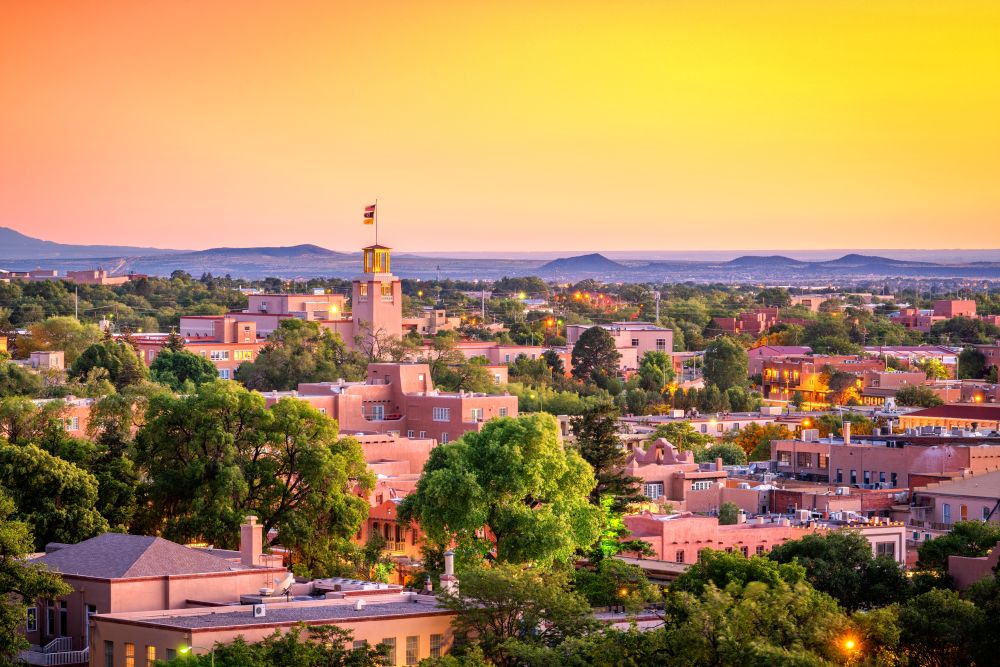
Judicial Leadership in Multidisciplinary Parent and Child Representation(MDR)for Child Welfare Cases
Authenticating and Admitting Electronic Evidence
Judicial Oversight of MOUD Providers: Ensuring Quality Without Practicing Medicine
The National Judicial Summit: The Foundation and Future of the Judiciary
Guardianship and Probate Matters
Mindfulness for Judges
Civil Mediation
Spring Training for Judges: Decision-Making, Leadership, and Team Dynamics
General Jurisdiction (JS 610) – Spring
Judicial Academy
Court Administration Academy for Judges and Court Staff
Judicial Renaissance Japan
Taking the Bench: An Interactive, Online Course for New Judges – Fall
General Jurisdiction (JS 610) – Fall
Fundamentals of Evidence: Web-Based – Fall
Selected Criminal Evidence Issues: Web-Based JS 602
Judicial Writing (JS 615)
Taking the Bench: An Interactive, Online Course for New Judges – Spring
Best Practices in Handling Cases with Self-Represented Litigants
Civil Mediation: An Online 40-Hour Workshop
Scientific Evidence & Expert Testimony (JS 622)
Logic & Opinion Writing (JS 621)
Ethics and Judging: Reaching Higher Ground (JS 601): Web-Based
Advanced Civil Mediation
Advanced Bench Skills: Procedural Fairness
Ethics TribalJudicial Executive Leadership by Harvard Law School Executive Education
Special Court Jurisdiction: Advanced (JS 611)
Administrative Law: Fair Hearing (JS 612)
Judicial Writing (JS 615) – ONLINE
Advanced Tribal Bench Skills: Competence, Confidence and Control
Designing and Presenting: A Faculty Development Workshop
Administrative LawEvidence Challenges for Administrative Law Judges: Web-Based
Taking the Bench: An Interactive, Online Course for New Administrative Law Judges
Fundamentals of Evidence: Web-Based – Spring
Administrative Law: Advanced (JS 649)
Special CourtsIt’s Time To Take A Beat: A Mindful Approach to Dealing with Vicarious Trauma in Courts
Advanced Evidence (JS 617)
Enhancing Judicial Bench Skills (JS 624)
Handling Small Claims Cases Effectively: Web-Based
Appellate Online Course Webinar Web Self-Study Free Tribal Online Self-Study Judicial Academy New Lecture Evidence Criminal Jurisdiction Civil JurisdictionJudicial Leadership in Multidisciplinary Parent and Child Representation(MDR)for Child Welfare Cases
Authenticating and Admitting Electronic Evidence
Judicial Oversight of MOUD Providers: Ensuring Quality Without Practicing Medicine
The National Judicial Summit: The Foundation and Future of the Judiciary
Guardianship and Probate Matters
Mindfulness for Judges
Civil Mediation
Spring Training for Judges: Decision-Making, Leadership, and Team Dynamics
General Jurisdiction (JS 610) - Spring
Judicial Academy
Court Administration Academy for Judges and Court Staff
Judicial Renaissance Japan
Taking the Bench: An Interactive, Online Course for New Judges - Fall
General Jurisdiction (JS 610) - Fall
Fundamentals of Evidence: Web-Based - Fall
Selected Criminal Evidence Issues: Web-Based JS 602
Judicial Writing (JS 615)
Taking the Bench: An Interactive, Online Course for New Judges - Spring
Best Practices in Handling Cases with Self-Represented Litigants
Civil Mediation: An Online 40-Hour Workshop
Scientific Evidence & Expert Testimony (JS 622)
Logic & Opinion Writing (JS 621)
Ethics and Judging: Reaching Higher Ground (JS 601): Web-Based
Advanced Civil Mediation
Advanced Bench Skills: Procedural Fairness
The National Judicial Summit: The Foundation and Future of the Judiciary
New Mexico judges. If you are a current Appellate, District, or Metro Court Judge in New Mexico, please do not register through the National Judicial College. Your attendance is required, and your registration fee will be paid by the New Mexico AOC Court Education Institute (CEI). You will receive a registration link and further instructions from CEI.
If you are a current New Mexico Hearing Officer or Special Commissioner, please do not register through the National Judicial College. Your registration fee will be paid by the New Mexico AOC Court Education Institute (CEI). You will receive a registration link and further instructions from CEI.
New Mexico Pro Tem judges and sitting New Mexico Tribal Court Judges please proceed to register through the NJC, but do not pay the registration fee. When you reach the payment page during the registration process, click the box labeled, “I need to request a certified payment plan or a deferred payment plan.” And Then select the option: My agency will pay my tuition and fees directly to the NJC, but only after I have completed the course. I understand that I will be personally responsible for payment of the withdrawal penalties should I withdraw or not complete the course.”
New Mexico judges with questions should contact: courteducation@nmcourts.gov